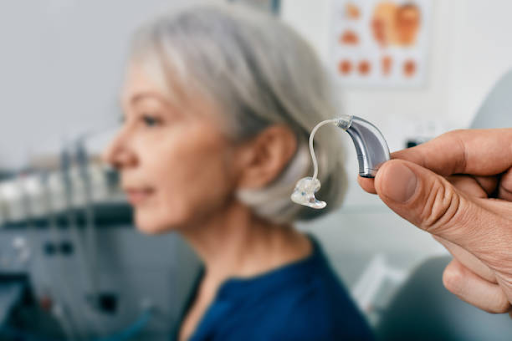Properly caring for your hearing aids helps to maintain their efficiency and longevity. Hearing aids are more than just electronic devices; they are medical tools that help you stay connected to the world around you. Regular maintenance, cleaning, and checkups play a big role in preventing issues that could affect your hearing experience. Whether you’ve recently started using hearing aids or have been wearing them for years, following a consistent care routine will maximize their performance and protect your investment in your hearing health.
Clean Your Hearing Aids Daily
Just like any other device you use every day, your hearing aids need to be cleaned regularly to ensure optimal performance. Earwax, dirt, and moisture can build up on your hearing aids and interfere with their function. Keeping them clean helps reduce the risk of these issues.
To clean your hearing aids, use a soft, dry cloth or a specific hearing aid cleaning brush, which your hearing health professional can usually provide. Gently wipe the entire surface of the hearing aid, being careful not to push wax deeper into the microphone or receiver.
Protect Your Hearing Aids from Moisture
Hearing aids are highly sensitive to moisture, which can cause them to malfunction. To protect them, always remove your hearing aids before activities like showering, swimming, or exercising. If you live in a humid area or sweat often, using a dehumidifier designed for hearing aids can help remove moisture overnight. Additionally, condensation from moving between hot and cold environments can introduce moisture, so it’s important to store your hearing aids in a cool, dry place and use a dehumidifier to prevent damage from humidity.
Change Batteries Regularly
Hearing aid batteries typically last around a week, depending on the model and usage. Low battery power can affect sound quality and may cause the devices to stop working unexpectedly. To avoid this, change the batteries before they deplete fully, and charge rechargeable batteries overnight. Carry spare batteries if your hearing aids use traditional ones to ensure you’re never without sound. During your routine hearing health exam, ask your professional to check the battery contacts for dirt or corrosion, as clean contacts help maintain reliable performance.
Store Your Hearing Aids Safely
When not in use, hearing aids should be stored in a safe, dry place. Always keep them in their designated case, which protects them from dust, dirt, and accidental damage. Avoid leaving your hearing aids in areas with extreme temperatures, such as in direct sunlight or in a car on a hot day, as heat can damage the delicate internal components.
If you have pets or young children at home, be sure to store your hearing aids out of reach. Hearing aids can be tempting for curious pets to chew on or for small children to play with, which could lead to costly repairs.
Schedule Regular Hearing Health Exams
Scheduling a routine hearing health exam with your hearing health professional allows them to check for any issues that may not be immediately noticeable, such as changes in your hearing or minor damage to the device.
During these exams, your hearing health professional will also clean your hearing aids more thoroughly than you can at home and make adjustments to their settings if needed. Also, your hearing may change over time, and a hearing health exam allows your hearing health professional to assess whether your current hearing aids are still suitable or if an upgrade is necessary.
Handle Your Hearing Aids with Care
When inserting or removing your hearing aids, take care not to drop them. Placing a soft cloth or towel underneath while you handle your hearing aids can prevent them from breaking if they slip out of your hands. Be careful not to forcefully adjust any of the settings or components, such as the battery door or volume control, as this could cause damage. If you’re unsure how to properly operate any aspect of your hearing aids, ask your hearing health professional for guidance during your next hearing health exam.
Replace Parts as Needed
Over time, parts of your hearing aids may wear out or need to be replaced, such as earmolds, tubing, or wax filters. Replacing these parts when necessary can significantly improve the performance of your hearing aids and reduce the risk of malfunction. If your hearing aids start to fit less comfortably or you notice a decline in sound quality, it may be time to replace the earmolds or tubing. Wax filters should also be checked regularly, as they prevent earwax from entering the hearing aid and clogging the internal components.
Take Care of Your Ears
Healthy ears contribute to better hearing aid performance. Make sure to keep your ears clean and free of excessive wax buildup, as this can interfere with how your hearing aids function. If you experience frequent earwax buildup, speak with your hearing health professional during your hearing health exam about safe ways to manage it. They can recommend products or procedures to keep your ears clean and support the performance of your hearing aids.

